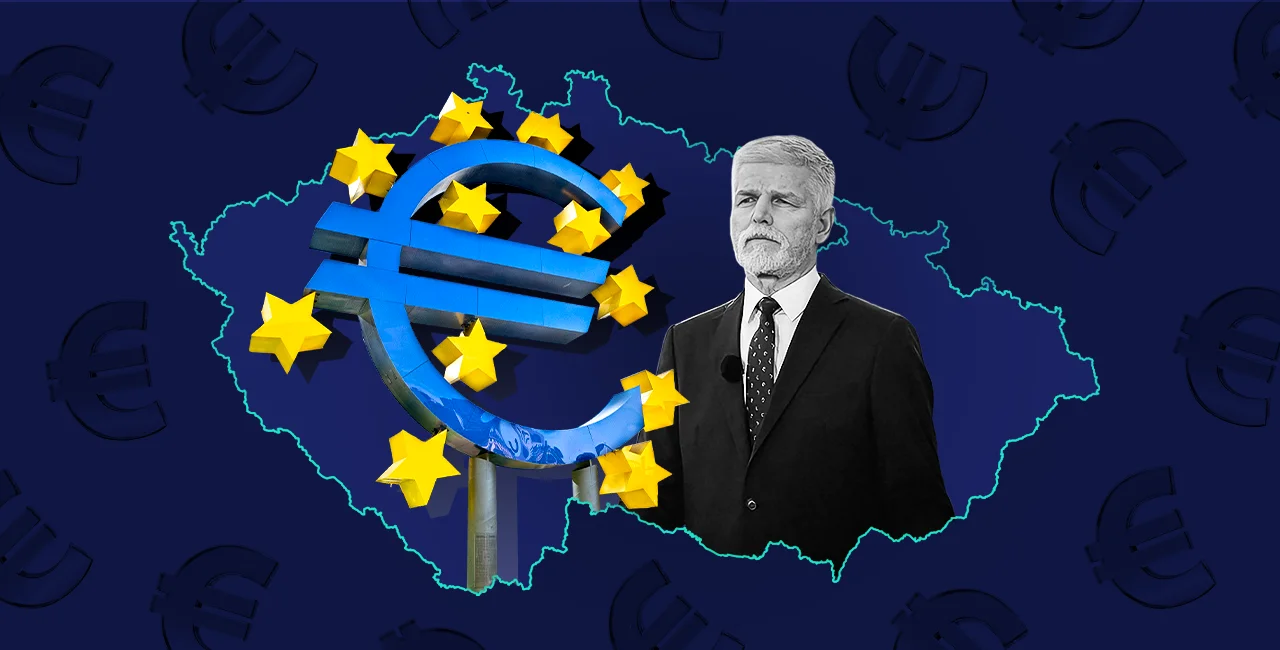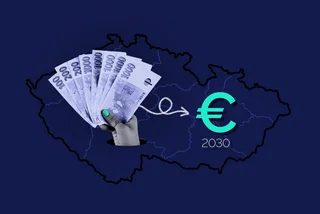Political analysts and economists expressed differing viewpoints in response to Czech President Petr Pavel's emphasis on adopting the euro in his New Year speech.
In his inaugural New Year address from Prague Castle on Monday, Pavel advocated for concrete steps towards adopting the euro. He cited euro adoption as the logical future for the Czech Republic, despite ongoing debates about the benefits and drawbacks. Pavel emphasized fulfilling the commitment to euro adoption after years of discussions.
Euro adoption is political, benefits to economy minimal
Several political analysts who commented to ČTK on the president's speech expressed surprise that Pavel emphasized euro adoption without addressing concrete tasks related to inflation and economic growth. Response by economists was mixed.
Economic analyst Vít Hradil of Cyrrus agreed with Pavel's call to initiate euro adoption steps, though questioned potential minimal economic benefits.
"Euro adoption is essentially a political matter, so it's acceptable for politicians to express opinions. However, economic benefits are questionable," he said.
In past decades, the eurozone economy did not impress with its performance, and new member countries saw no noticeable prosperity increase. Experience shows no significant beneficial effect of the euro on economies, according to Hradil.
Trinity Bank analyst Lukáš Kovanda agreed that adoption is primarily political and that economic arguments remain unconvincing. Certain interest groups may economically benefit, but politicians should consider widespread social and economic impacts, Kovanda said in a post on social network X.
Do you think Czechia should adopt the euro?
"The euro is likely to dangerously increase the Czech Republic's debt and worsen its credit rating. Slovakia is a warning in this respect. Its rating is heading downwards after adopting the euro, as is the case for most eurozone countries. Those EU countries that remain outside the eurozone, on the other hand, generally see their ratings improve."
In a previous post on the social network, Kovanda mentioned that the koruna has been the second-best performing currency in Europe after the Swiss franc in recent years.
S eurem bychom v uplynulých letech měli:
— Lukáš Kovanda (@LukasKovanda) January 1, 2024
1) vyššà inflaci (ECB by s úroky nešla tak vysoko, jako šla ČNB)
2) levnÄ›jÅ¡Ã hypotéky (což ale znamená silnÄ›jÅ¡Ã tlak na růst cen bydlenÃ)
3) hůře úroÄené vklady v bankách
4) výraznějšà pokles životnà úrovně (kvůli vyššà inflaci při…
He argued that had the country adopted the euro, it would have resulted in higher inflation, more affordable mortgages causing increased upward pressure on housing prices, lower interest-bearing deposits in banks, and a more pronounced decline in living standards.
Supporters cite commitment to EU
Capitalinked.com founder Radim Dohnal highlighted the alignment of Pavel's speech with priorities around NATO and the EU.
EU membership means a euro commitment. Avoiding this after 20 years is wrong," said Dohnal. However, he prefers debate outcomes like setting adoption criteria that are fixed, unchanging, and rigorous.
Tomáš Jícha, deputy chairman of the board at the investment company Atris, expressed his support for euro adoption and commended the president's open endorsement. He noted.
"An increasingly significant portion of the Czech economy is already directly connected to the euro. Euro-based bank financing, for instance, is already quite prevalent. In the real estate industry, it's customary for rent to be tied to the euro," he added.
In a 2023 interview, Labor Minister Marian Jurečka predicted that Czechia could transition to the euro between 2025 and 2030, saying that the country will fulfill Maastricht criteria (a set of rules a country must fulfill before adopting the euro) by the end of the decade.












 Reading time: 2 minutes
Reading time: 2 minutes 
























